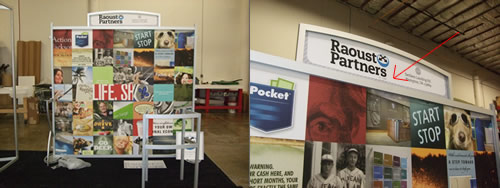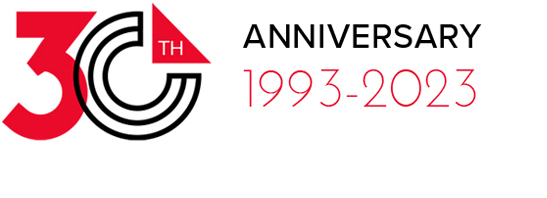 Manufacturing is a funny and fickle business. Products are designed, engineered, built, tested . . . then re-engineered, re-tested, and finally launched (hopefully to eager and admiring customers). Most companies do their best to get it right. They care about quality, especially on new products.
Manufacturing is a funny and fickle business. Products are designed, engineered, built, tested . . . then re-engineered, re-tested, and finally launched (hopefully to eager and admiring customers). Most companies do their best to get it right. They care about quality, especially on new products.
I’ve been in the trade show exhibit business long enough to have seen some oddities regarding product launches. I once worked for a company that introduced a new pop up that was an engineering masterpiece. I’m still in awe of the engineer who developed the self-locking hub. At the time, everyone, and I mean everyone, thought there were no new wrinkles in pop up displays. They were wrong. Everything about this pop up frame was remarkable . . . except for one thing: the plastic. The engineer spec’d the wrong plastic and the brittle plastic broke within two or three months. The company bit the bullet however, despite having $50,000 in plastic parts, and modified the molds and re-ordered the parts with the correct plastic.
But what about existing products? For years there was a pop up manufacturer that sold a frame with plastic connectors. The connectors would break if you didn’t baby them. And rather than re-design the connectors, the manufacturer solved the problem by basically ignoring the real problem. Instead, whenever you bought a new pop up, they would include a repair kit which included additional connectors. I believe the term was “field repairable,” which meant that it was “field breakable.” Many companies expend all their energy on new product development and ignore existing products. After all, when it comes to existing products, it’s easy to blame the customer for not installing it correctly or not reading the instructions or simply not being satisfied with “good enough.”
You’re probably wondering if I have a point. Classic is not a “field repairable” or “good enough” company, at least I don’t think we are. But, we’re also not infallible. We sometimes make mistakes, but those mistakes are quickly rectified and then the solution is re-designed into future products.
For example, the Sacagawea Portable Hybrid Display has undergone several enhancements since its introduction about 10 months ago. We modified the base plates to make them lighter. In addition, we replaced hex key connections on the backwall with knobs to make the displays easier to set-up. Recently, we modified the horizontal spline connector, which makes the connection tighter and eliminates a small gap in the horizontal crossbar. I don’t know that anyone ever complained about it, but it bothered us and our Production Engineer came up with a slick and simple solution. We now use this solution for the Magellan Displays as well. I can’t show it to you (since I don’t want to give our competitors any ideas), but I will show you the result. See the photos below.

Modified Horizontal Crossbar on Sacagawea Hybrid Display
Now I’m generally not someone who likes to tell tales, but I do love a good story. Do you have any examples of products or solutions where you were told by the manufacturer that they were “good enough”? Or you were given a solution that wasn’t really a solution, but just a band-aid. How do you respond to that logic?
–Mel White
http://www.linkedin.com/in/melmwhite
mel@classicexhibits.com
Classic Exhibits Network (LinkedIn)







